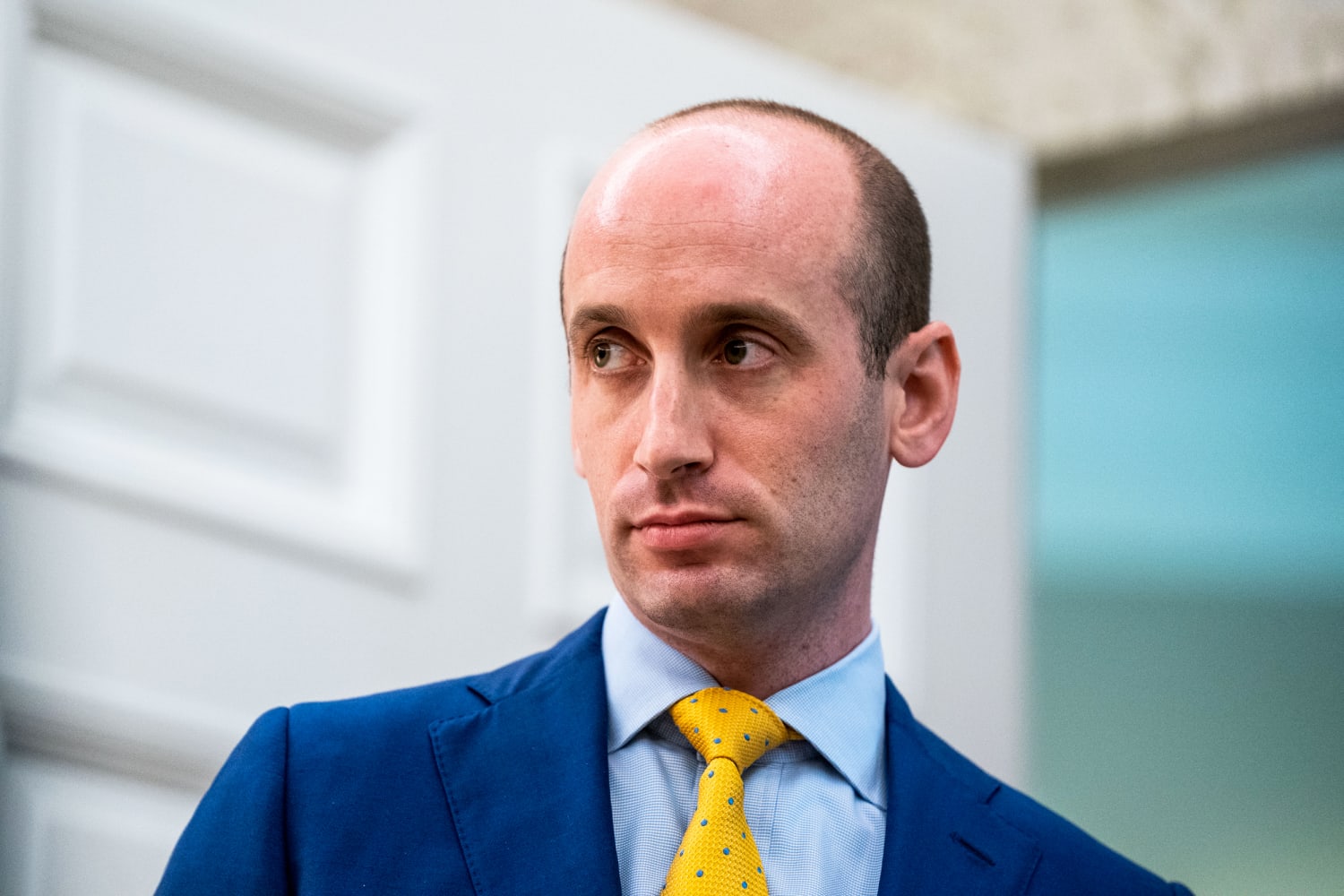Stephen Miller: The Architect of Trump's Immigration Policies
Stephen Miller, a former senior advisor to President Donald Trump, has been a central figure in shaping the administration's immigration policies. With his background in conservative advocacy and sharp advocacy skills, Miller played a pivotal role in crafting the Trump administration's hardline immigration stance, which has had far-reaching consequences for millions of people around the world. In this article, we will delve into Miller's life, career, and impact on Trump's immigration policies, exploring the key events, decisions, and figures that contributed to the administration's hardline stance.
Stephen Miller's Rise to Prominence
Born in 1989 in New York City, Miller grew up in a conservative Jewish family and was exposed to right-wing politics from an early age. He attended Harvard University, where he became involved in conservative activism, writing for the Harvard Crimson and interning at the Heritage Foundation. After college, Miller worked as a policy analyst for Senator Jeff Sessions, who would later become Trump's Attorney General. Miller's work on immigration policy during this period laid the groundwork for his future role as a key architect of Trump's immigration agenda.
Miller's early involvement in conservative politics also brought him to the attention of then-presidential candidate Donald Trump. In 2016, Trump appointed Miller as his senior policy advisor, where he would play a crucial role in shaping the administration's stance on immigration. Miller's appointment was seen as a significant coup for the Trump campaign, as he brought a deep understanding of conservative ideology and a strong track record of advocating for stricter immigration policies.
The Obama-ERA Immigration Reform
Before joining the Trump administration, Miller was an active proponent of stricter immigration reform. He advocated for policies such as the " merit-based immigration system" and " border wall" that aimed to restrict immigration and limit access to benefits for unauthorized immigrants. These policies were in line with Trump's "America First" agenda and reflected Miller's own commitment to tightening immigration laws.
The Trump Administration's Immigration Agenda
Miller's appointment as senior policy advisor to Trump marked the beginning of a new era in immigration policy. Under his guidance, the administration implemented several key measures aimed at restricting immigration and limiting access to benefits for unauthorized immigrants. Some of the most notable measures include:
- The Travel Ban: A directive issued by the Department of Homeland Security that targeted seven predominantly Muslim countries, suspending travel to the US for citizens of these countries.
- The "Remain in Mexico" Policy: A policy implemented at the US-Mexico border, requiring asylum seekers to wait in Mexico while their cases are processed in the US.
- The Wall: A proposal to build a border wall along the US-Mexico border, which has been a central component of the Trump administration's immigration agenda.
Key Players in the Debate
Miller's immigration policies have been the subject of intense debate, with many arguing that they are unduly harsh and unworkable. Some of the key players in the debate include:
- Rudy Giuliani: Trump's personal attorney, who has been a vocal supporter of Miller's immigration policies and has helped to shape the administration's stance on the issue.
- Judicial Advisory Committee of the US Citizenship and Immigration Services (USCIS): A group of judges who have reviewed and challenged the administration's immigration policies, including the "Remain in Mexico" policy.
- The American Civil Liberties Union (ACLU): A civil rights organization that has filed numerous lawsuits challenging the administration's immigration policies, including the travel ban.
The Impact on Unauthorized Immigrants
Miller's immigration policies have had a significant impact on unauthorized immigrants, who are now facing greater barriers to accessing essential services such as healthcare and education. Some of the key challenges faced by unauthorized immigrants include:
- Limited Access to Healthcare: Unauthorized immigrants are no longer eligible for Medicaid or the Children's Health Insurance Program (CHIP), leaving many without access to essential healthcare services.
- Increased Detention and Deportation: The administration's hardline stance on immigration has led to increased detention and deportation of unauthorized immigrants, with many being held in poor conditions and separated from their families.
- Difficulty Accessing Education: Unauthorized immigrants are no longer eligible for federal student aid, making it difficult for them to access education and training programs.
Miller's Departure from the Administration
In September 2018, Miller announced that he would be leaving the White House, citing a desire to return to his role as a senior advisor to Trump. Miller's departure marked a significant shift in the administration's immigration agenda, as his departure paved the way for more moderate voices to take the stage.
Conclusion
Stephen Miller's role as the architect of Trump's immigration policies has been a defining feature of the administration's hardline stance on the issue. While his departure from the administration has marked a significant shift in the policy landscape, the impact of his policies will be felt for years to come. As the debate over immigration policy continues to unfold, it is essential to examine the key players, events, and decisions that have shaped the Trump administration's approach to immigration.
Google Places Rank Checker
Coyyn
Shanin Blaked
Article Recommendations
- Competitiveeo Rank
- Honey Toon
- Chaun Woo Parents
- King Von Autopsy Back
- Gina Wapd
- Clintastwoodndorsement 2024
- Marcus Rosner
- Nfl Retro Bowl 25
- Nikki Catsouraseathxplained
- Jessica Tarlov Fired



